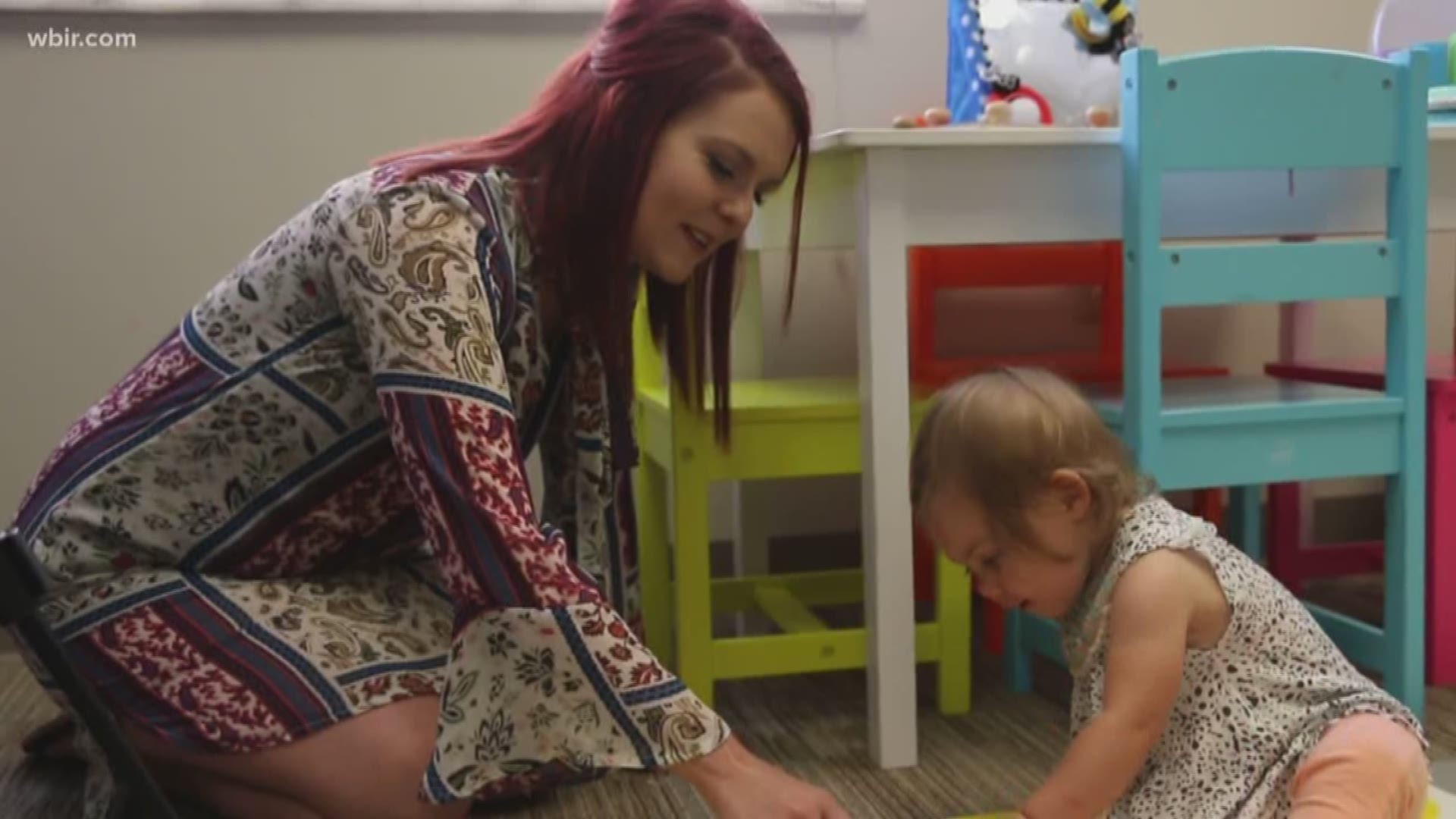KNOXVILLE — New research shows it is safe for women addicted to drugs to go through detox while pregnant.
The program at the University of Tennessee Medical Center gives expecting mothers a chance to get clean before giving birth. Babies born to drug dependent mothers are born with Neonatal Abstinence Syndrome, NAS, and must begin their lives going through detox.
"We have been through everything together. We have been through everything," said Mollie Ogle, a former drug addict who gave birth to a healthy baby after going through detox while pregnant. "While I was pregnant with her, I had used drugs up until I was about six months pregnant."
One of the first things Ogle and her baby, Adaline, did together was go through detox, well before Adaline was even born.
"Even though I did put her through that, I knew she didn’t make that choice, she didn’t choose to have that life, but I did," Ogle said. "I needed to be the one to have the repercussions for it. I didn’t want her to suffer at all. I didn’t know how to stop though."
Ogle spent a portion of her pregnancy in the Blount County jail serving time for a drug charge. She said she was using anything and everything when it came to drugs, frequenting meth and opiates. Coming to terms with an unplanned pregnancy, she knew she had to get clean if she wanted to give birth to a healthy child.
"Everybody told me that I would love my child in such a different way than I had ever imagined, but I didn’t understand that until she was born," said Ogle. "Even when I was detoxing, it’s like she didn’t have any side effects at all, she was just a normal baby just moving around."
Ogle turned to Dr. Craig Towers and his team at UT Medical Center to begin the process of getting clean before Adaline would come into the world.
"Research shows that it’s not harmful to the fetus while the mom is going through detoxification," said Towers, a professor and practicing OBGYN who specializes in high risk pregnancies at UT Medical. "It’s safer for the baby than being born with NAS. The controversy on the opposite side is that if a mother tapers and detoxes, what is her risk for relapse and if she relapses what is her risk for overdose?"
Frustration turned into a passion for Towers.
When he got tired of telling pregnant women they could not go to detox, he began searching for an answer as to why it was not safe. Instead, he found the opposite.
Towers began his research on more than 400 women to compare babies born with NAS to the effects detox has on a child in the womb. Last year, one out of every 10 women who delivered babies at UT medical suffered from opiate use disorder. That’s more than 300 children. At any given time, 10 to 40 percent of the babies in the neonatal intensive care unit are going through treatment for NAS.
"I think the preliminary data is going to show that staying on opiates and delivering a child that is dependent on that drug and going through NAS can theoretically cause some issues for the child and potentially long term, we just don’t know how long term," said Towers. "If you do not combine good behavioral health with your process of tapering and detoxification, you’re going to have a high rate of relapse. 10% of women in his program relapse."
Towers’ research shows babies born drug dependent have a higher chance of having developmental problems. Still, the symptoms that come with detox are so severe it’s challenging for patients to stay clean.
"A person who is going through withdrawals can have uncontrollable diarrhea, nausea, vomiting, stomach pains, night sweats, shivering," said Towers. "No time have I ever said that we should recommend detoxification. We’re not at a point in our research to that level but I do think that if you have the capability of applying behavioral health with a physician managed tapering detoxification program, that the woman should be offered the program if she is interested."
For Ogle the program helped her deliver a healthy baby and avoided Adaline having to go to detox immediately after she was born. Ogle has been sober for nine months and her daughter is her motivation to beat her cravings.
"I look at myself as a survivor and I look at her as a survivor. I don’t look at either one of us as victims to addiction or anything like that. We’re survivors of addiction. And I say we because she went through it with me," Ogle said. "The day that you choose to get sober and turn your life around and you realize that you want better for yourself and your child, it’s a life like you’ve never known."

